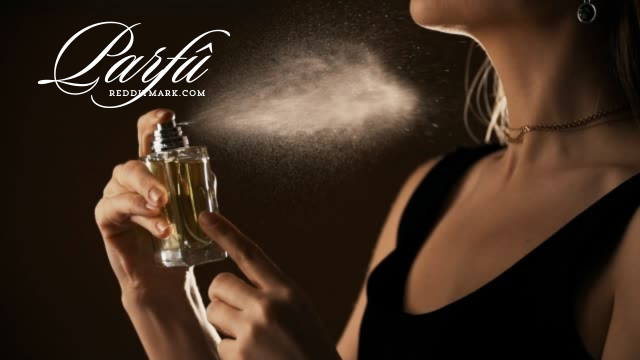Introduction
Perfume, or parfû, is more than just a perfume; it is a delicate mixture of artwork and science that has enchanted humans for hundreds of years. From historic rituals to fashionable-day elegance, perfume performs a crucial function in private expression and cultural practices. This manual explores the difficult international of Parfû, uncovering its history, sorts, creation procedure, and lots more.
The History of Parfû
Fragrance has a rich history that returns numerous years. The antiquated Egyptians were quick to remember fragrances for their customs, involving scented oils and gums in otherworldly services. The Greeks and Romans later followed these works, involving fragrances openly showers and on specific occasions Over the centuries, the art of perfumery has evolved, fueled by trade, exploration, and cultural exchange, the main features of the diverse and complex fragrances we enjoy today.
What is Parfû?
At its center, the fragrance is a confounded total of sweet-smelling oils, sweet-smelling mixtures, solvents, and fixatives. Together, these components of the composition make an agreeable combo that charms the faculties. The reason for fragrance isn’t just to give a lovely aroma, but additionally to summon feelings and recollections, making it an amazing asset for non-public articulation.
Types of Parfû
Perfumes are classified entirely based on their awareness of scent compounds:
Eau de Parfum (EDP): Due to the excessive concentration of perfume oils, the EDP is rich and long-lasting, ideal for night wear.
Eau de Toilette (EDT): Lighter than the EDP, the EDT is suitable for everyday use and adds a fresh scent.
Eau de Cologne: Known for its clean and delicate fragrance, often used by men, it has a lower awareness of oils.
Parfû: The most concentrated form, luxurious and effective, requiring the most skillful and least benefit.
The Smell of Family
Parfû are divided into different groups of scents, each of which has different characteristics:
Floral: Dominated by the scents of vegetation such as roses and jasmine, this family is feminine and romantic.
Oriental: These fragrances are characterized by warmth and unique notes of spices, amber, and resins, sensual and mysterious.
Woody: Characterized by earthy notes like sandalwood and cedar, they evoke a sense of heat and sophistication.
Fresh: Comprising citrus, green, and aquatic scents, this circle of relatives is vibrant and invigorating.
Parfû Notes
Parfû consist of 3 layers of notes:
Top Notes: The initial blast of the perfume, often light and fresh, creates a first impact but fades quickly.
Middle notes: Also referred to as coronary heart notes, they develop after the top notes are exhausted and offer the body of the perfume.
Base Notes: The base of the perfume, these notes are rich and deep, lingering for hours and adding complexity.
Creation of Parfû
The arrival of fragrance is a careful process that mixes art and technology:
Extraction of ingredients: Essential oils are extracted from natural sources using methods including distillation and solvent extraction.
Blending: Perfumers, also called “noses,” skillfully blend different oils to create specific scents.
Aging: The combination ages to allow the ingredients to harmonize and enhance the intoxicating aroma.
Testing: The perfume is tested for stability to ensure it maintains its integrity over the years.
Major Parfû Houses
Several renowned perfume houses have shaped the industry with their iconic creations:
Chanel: Known for undying scents like Chanel No. Five, synonymous with beauty.
Dior: Offers sophisticated fragrances that exude luxury and refinement.
Gucci: Known for formidable and cutting-edge scents, shooting the essence of modern style.
How to Choose the Right Parfû
Selecting the proper fragrance involves knowledge of the one-of-a-kind notes and the way they interact with your body chemistry. It’s critical to:
Test on Skin: Perfume reacts uniquely with all of us’s skin, so constantly test before buying.
Consider the Occasion: Lighter fragrances are suitable for daylight, while richer scents are best for evenings.
Understand the Notes: Familiarity with the pinnacle, middle, and base notes assist you in picking out a perfume that fits your personality.
Applying Perfume Correctly
To maximize the longevity and impact of your perfume:
Pulse Points: Apply to regions in which the frame generates heat, along with wrists, neck, and behind the ears.
Hair and Clothing: Lightly mist on hair and apparel for a long-lasting impact, but be careful of staining.
Layering: Use complementary merchandise like scented creams or body washes to enhance the perfume.
Common Parfû Myths
There are numerous misconceptions about fragrance:
Expensive Means Better: Price doesn’t usually replicate best; many inexpensive perfumes provide great durability and sillage.
All Natural is Superior: Synthetic elements can decorate perfume stability and longevity, making them precious in perfumery.
Rubbing Wrists Together: This practice can regulate the perfume, breaking down the top notes upfront.
Parfû and Emotions
Perfume has the energy to rouse feelings and memories, making it deeply private. Certain scents can ship you to a one-of-a-kind time or region, triggering nostalgia or joy, and improving your average well-being.
Parfû in different cultures
Perfume has a precise meaning in many cultures in this sector. Deeply embedded in everyday lifestyle in the Middle East, fragrances regularly deliver rich, wonderful ingredients such as oud and ambergris. These fragrances are used in every personal grooming and hospitality, symbolizing warmth and generosity.
In France, where modern perfumery was born, fragrance is considered an art form and renowned houses develop sophisticated fragrances that combine lifestyle and innovation. Meanwhile, in Asia, lighter, richer scents are desired, reflecting the place’s emphasis on subtlety and harmony.
The Role of perfumers
Perfumers regularly referred to as “noses”, play a vital role in the launch of fragrances. Their paintings combine creativity with deep expertise in chemistry as they carefully select and mix elements to create specific scents. This process requires years of schooling and fun, plus a surprisingly developed sense of smell.
Perfumers often draw suggestions from nature, art, and personal reviews and translate these elements into olfactory compositions that evoke precise emotions and memories. Their creations are now not the simplest replica of their non-public art, but they additionally take care of different consumer alternatives and properties.
Sustainability in Perfumery
The fragrance industry is increasingly embracing sustainability and responding to clients’ growing awareness of environmental issues. Many brands source ingredients ethically, support fair alternative practices, and reduce their carbon footprint. Packaging innovation, along with recyclables and refillable bottles, are also changing to become more conventional.
In addition, some corporations are exploring the use of biotechnologically derived ingredients that reduce dependence on natural resources and reduce environmental impacts. This shift towards sustainability is now not the most adept to protect the planet, but it additionally increases the appeal of perfumes to environmentally conscious clients.
The Cultural Significance of Parfû
In many cultures, perfume is symbolic that means. It is utilized in ceremonies and rituals, reflecting spirituality and standing. In present-day society, it has turned out to be a critical part of private grooming and self-expression, transcending gender and age.
The Future of Parfû
The Parfû enterprise is usually evolving, with advancements in the era and sustainable practices shaping its future. Innovations inclusive of biodegradable packaging and green components are getting an increasing number of critical, attractive to environmentally conscious purchasers.
Conclusion
Perfume is a sensory enjoyment that combines artwork, way of life, and technology. Whether you’re a pro-connoisseur or new to the sector of fragrance, there’s always something new to find out. Let your fragrance tell your tale and discover the captivating international perfume.
FAQs
Q: How ought I store my perfume?
A: Store it in a groovy, darkish region to maintain its fragrance and toughness, far from direct daylight and temperature fluctuations.
Q: Can I wear fragrance every day?
A: Yes, pick out lighter fragrances for everyday use and save richer, extra-intense scents for special activities.
Q: How lengthy does perfume final?
A: Typically, perfumes remain between three to 5 years whilst saved properly, although this may vary based on the method.
Q: What is the distinction between Eau de Toilette and Eau de Parfum?
A: Eau de Parfum has a better concentration of perfume oils, offering an extended-lasting fragrance compared to Eau de Toilette.
Q: Can fragrance expire?
A: Yes, fragrance can expire. Over time, publicity to mild, warmth, and air can alter the fragrance. It’s fine to use it for 3 to five years for the surest scent.
Q: What’s the exceptional manner to check a perfume in a shop?
A: Spray it on a tester strip first, then to your skin. Allow it to broaden for a couple of minutes to revel in the entire variety of notes.
Q: How can I make my fragrance final longer?
A: Apply it to moisturized skin, awareness of pulse points, and recollect layering with matching frame merchandise to beautify durability.
Q: Why do perfumes odor special on distinctive human beings?
A: Body chemistry, skin kind, or even food regimen can affect how a fragrance smells, making it unique to every character.
Q: Is it safe to put on fragrance inside the sun?
A: Some perfumes include ingredients that can cause skin irritation or photosensitivity whilst uncovered to daylight. It’s fine to use fragrance in regions, not without delay uncovered to the sun.



